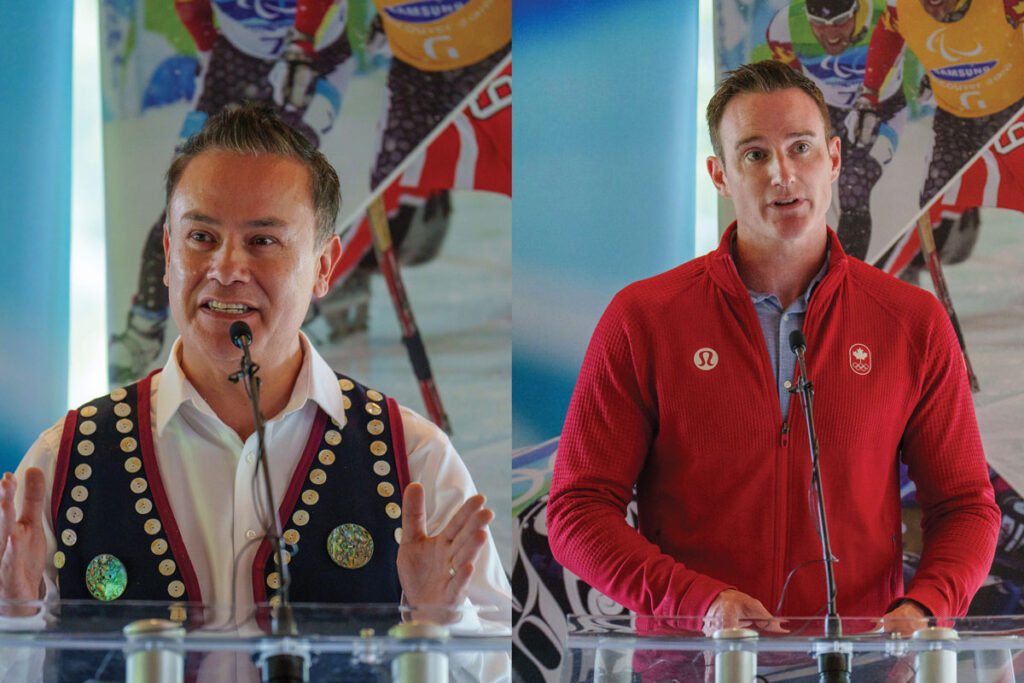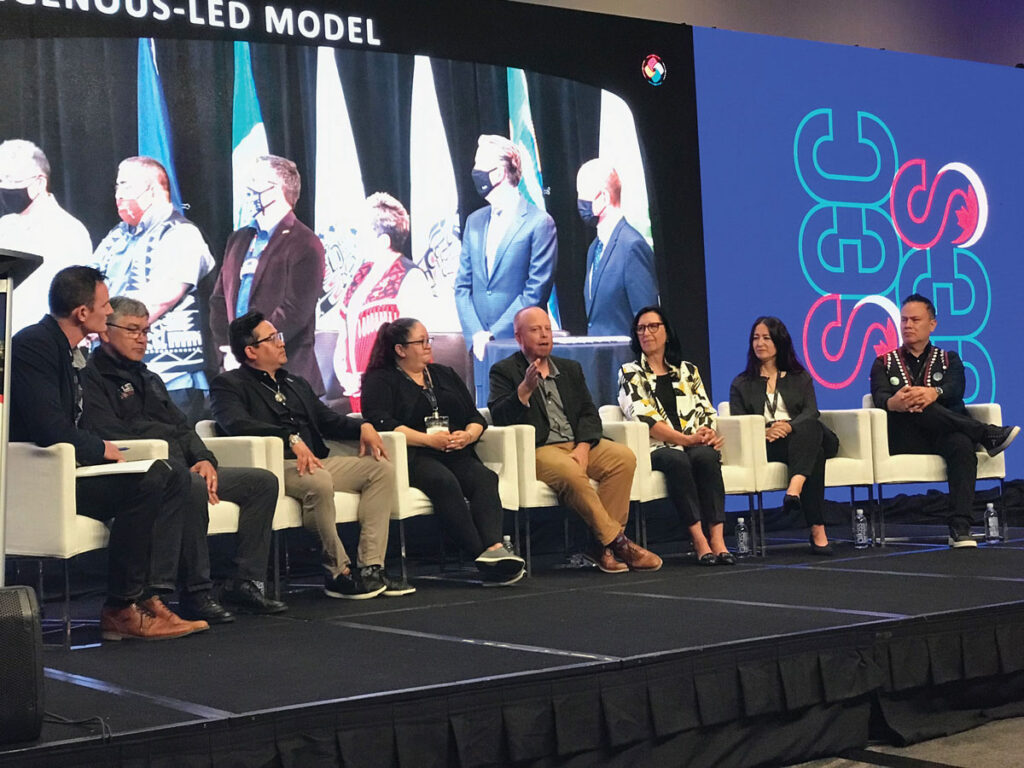Why the Indigenous-led bid for the 2030 Winter Games is a template for future sport-hosting partnerships.
By Sarah B. Hood

In 2015, the Truth and Reconciliation Commission of Canada published its Calls to Action, a comprehensive list of actionable policy recommendations designed to help Indigenous communities and Canada as a whole heal from the trauma of residential schools. Five of them concern sport, and recently, a groundbreaking partnership moved one step closer to fulfilling them.
CALL TO ACTION #91 calls upon officials and host countries of international sporting events, such as the Olympics, Pan Am and Commonwealth Games, “to ensure that Indigenous peoples’ territorial protocols are respected, and local Indigenous communities are engaged in all aspects of planning and participating in such events.”
In the summer of 2022, the Lil̓wat7úl (Líl̓wat), xʷməθkʷəy̓əm (Musqueam), Sḵwx̱wú7mesh (Squamish) and səlilwətaɬ (Tsleil-Waututh) First Nations invited the Canadian Olympic Committee (COC), the Canadian Paralympic Committee (CPC), the City of Vancouver and the Resort Municipality of Whistler to join them in submitting a concept for a privately funded, Indigenous-led bid for the 2030 Winter Games, the first-ever initiative of its kind.
The bid was not ultimately supported by the Province of British Columbia and therefore did not move forward, but “I would say that First Nations sitting at the partnership table from the onset of the project is a big difference from anything I’ve seen or heard of across this country,” says Tewanee Joseph, CEO of Tewanee Consulting Group, who served as the partnerships and inclusivity lead for the B.C. 2030 Feasibility Team.
Joseph, who is himself a member of the Squamish First Nation and half Maori, says that the COC and CPC were “very supportive” of the concept initiated by the four First Nations. “Being a real partner in a project is empowering,” he says, praising both bodies for their ability to see the importance of the process and recognize the aims of the participating Indigenous leaders.
FOCUS ON OPPORTUNITIES
Andrew Baker, chief external affairs officer for the COC, says, “the whole project was an incredible learning experience for the organization as a whole and for the individuals who were working on it.”
The four host Nations “led us into the process,” he says. “A leadership assembly was struck, led by the leaders of the four First Nations, with the mayors of Vancouver and the Resort Municipality of Whistler, the president of the COC and the vice-president of the CPC.”
He points to the community consultation, which began within the host Nations before spreading outwards, as a signal difference from previous bidding processes, and notes that the nature of the project drew out creative visioning about potential opportunities rather than focusing on challenges.
COMMON PURPOSE AND GOAL
“These Games represented a unique opportunity to demonstrate, on a global level, what reconciliation might look like and we entered this process believing in the vision,” says Jack Crompton, Mayor of the Resort Municipality of Whistler.
“This process gave us a common purpose and goal, which is one of the most effective ways to build connections and understanding,” Crompton says. “Working with everyone as equal partners around the same table allowed for Indigenous knowledge and teaching to emerge in the project discussions. The process showed us what’s possible when we put reconciliation at the forefront of our work.”
This unique bidding process was a first, but it may not be the last. “I’m hopeful that we will see another Indigenous-led project come to light, and I think this is something that has the potential to set us apart internationally,” says Baker.
“First Nations people want the best for this country, not only to benefit Indigenous people, but also everybody else,” Joseph says. “I believe that this is a time of transformation. If we take a step together, then there’s nothing that will hold us back, and I think the Games are a way to truly bring our country together and to be an action item around reconciliation.”

Panel session during Sport Events Congress 2023 (left to right): Andrew Baker, COC; Chief Dean Nelson, Lil’wat Nation; Wilson Williams, Squamish Nation; Courtenay Gibson, BC2030 team; Jack Crompton, Mayor of Whistler; Tricia Smith, COC president; Gail Hamamoto, Canadian Paralympic Committee and CDC Wheelchair Sports Association; Tewanee Joseph, BC2030 team
Published October, 2023



